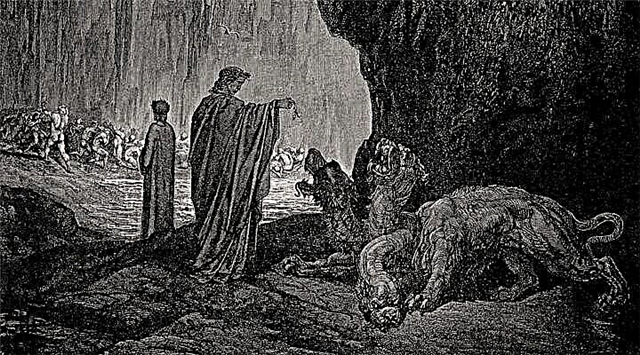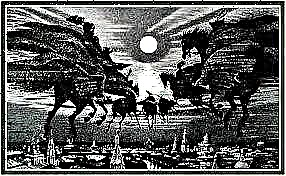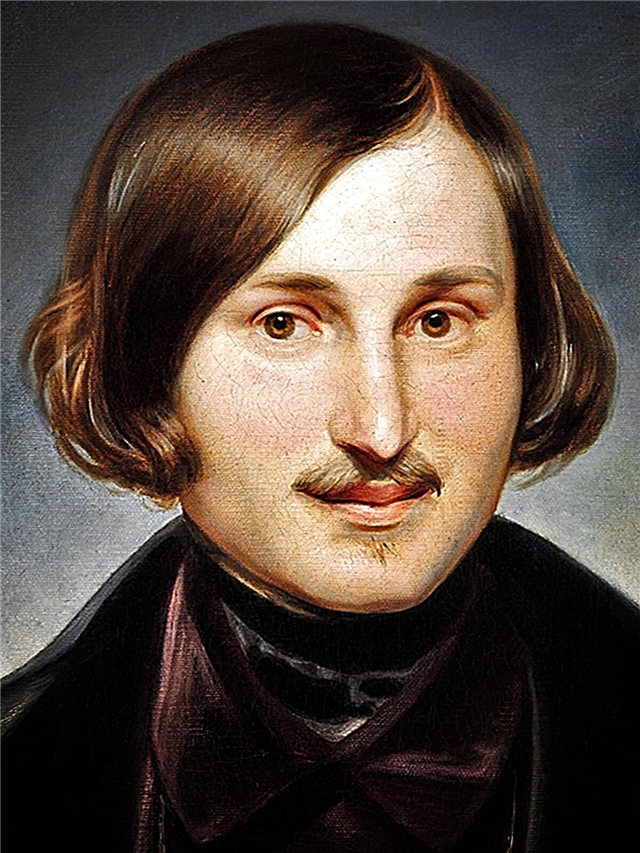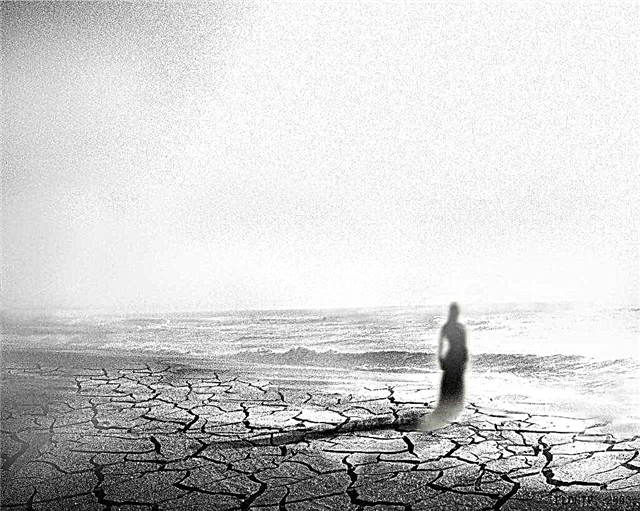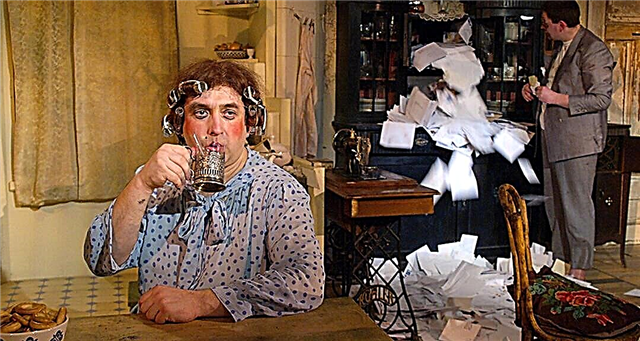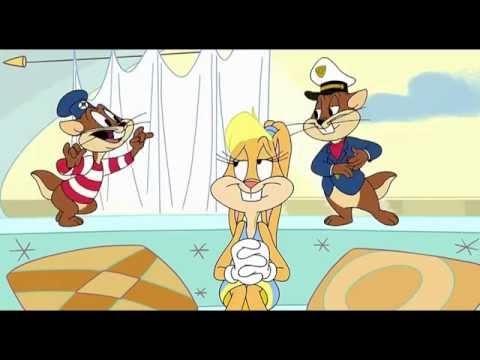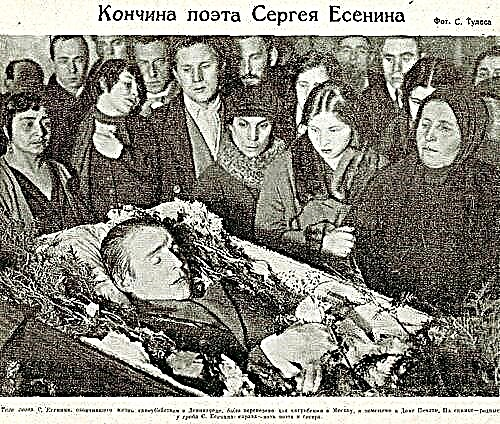The work is written in the form of dialogue. His heroes are the narrator (meaning Diderot himself) and the nephew of Jean-Philippe Rameau, the largest representative of classicism in French music from the time of Diderot. The narrator first describes the nephew of Rameau: he certifies him as one of “the most bizarre and strange creatures in this region”; he does not boast of his good qualities and is not ashamed of the bad; he leads a hectic life: today in tatters, tomorrow in luxury. But, according to the narrator, when such a person appears in society, he makes people lose their secular mask and discover their true nature.
Rameau's nephew and narrator accidentally meet in a cafe and start a conversation. The theme of genius arises; Rameau's nephew believes that geniuses are not needed, since evil always appears in the world through some genius; moreover, geniuses expose errors, and for nations there is nothing more harmful than truth. The narrator argues that if a lie is useful for a short time, then over time it turns out to be harmful, but the truth is useful, and there are two kinds of laws: some are eternal, others are transient, appearing only due to blindness of people; a genius may fall prey to this law, but dishonor will eventually fall on his judges (example of Socrates). Rameau's nephew argues that it is better to be an honest merchant and a glorious minor than a genius with a bad character, so in the first case, a person can accumulate a great fortune and spend it on his and his neighbors' pleasures. The narrator argues that only the people living near him suffer from the bad character of a genius, but over the centuries his works make people be better, cultivate high virtues: of course, it would be better if the genius was as virtuous as great, but we agree to accept things as they are. Rameau's nephew says he would like to be a great man, a famous composer; then he would have all the blessings of life and he would enjoy his glory. Then he tells how his patrons drove him away, because once in his life he tried to speak as a sensible person, and not as a buffoon and a folly. The narrator advises him to return to his benefactors and ask for forgiveness, but in his nephew, Ramo reigns pride, and he says that he can not do this. The narrator then offers him to lead the life of a beggar; Rameau’s nephew replies that he despises himself, as he could live luxuriously, being a hangover with the rich, carrying out their delicate errands, and he does not use his talents. At the same time, he plays with great skill in front of his interlocutor a whole scene, assigning himself the role of a pimp.
The narrator, outraged by the cynicism of his interlocutor, suggests changing the subject. But, before doing this, Rameau manages to play two more scenes: first he portrays a violinist, and then, with no less success, a pianist; because he is not only the nephew of the composer Rameau, but also his student and a good musician. They talk about raising the storyteller’s daughter: the storyteller says that he will learn dancing, singing and music to a minimum, and he will give the main place to grammar, mythology, history, geography, morality; there will also be a bit of drawing. Nephew Rameau believes that it will be impossible to find good teachers, because they would have to devote their whole life to studying these subjects; in his opinion, the most skilled of the current teachers is the one who has more practice; therefore, he, Rameau, coming to the lesson, pretends that he has more lessons than hours in a day. But now, according to him, he is giving lessons well, and before he was paid for nothing, but he did not feel remorse, since he took money not honestly earned, but looted; after all, in society, all classes devour each other (the dancer deceives the money from the one who contains it, and the fashion designers, the baker, etc.) deceive the money from her. And here the general rules of morality do not fit, because a universal conscience, like a universal grammar, allows for exceptions to the rules, the so-called "moral idiocy". Rameau's nephew says that if he became rich, he would lead a life full of sensual pleasures and would only care about himself; however, he notes that his point of view is shared by all wealthy people. The narrator objects that it is much more pleasant to help the unfortunate, to read a good book and the like; to be happy you have to be honest. Rameau replies that, in his opinion, all the so-called virtues are nothing more than vanity. Why defend the fatherland - it is no longer there, but there are only tyrants and slaves; helping friends means making ungrateful people out of them; and to occupy a position in society is only to be enriched. Virtue is boring, it freezes, it is a very uncomfortable thing; and virtuous people in fact turn out to be goodies, cherishing secret vices. It is better to let him make up his happiness with the vices characteristic of him, than to distort himself and pretend to seem virtuous when it turns his patrons away from him. He tells how he humbled himself before them, how, in order to please his “masters," he and a company of other hangers-on abused remarkable scientists, philosophers, writers, including Didro. He demonstrates his ability to take the right postures and say the right words. He says that he reads Theophrastus, Labruyeres and Moliere, and draws the following conclusion: "Keep your vices that are useful to you, but avoid their inherent tone and appearance that can make you funny." To avoid this behavior, you need to know it, and these authors very well described it. He is only funny when he wants to; there is no better role with the powerful than the role of the jester. It should be what is beneficial; if virtue could lead to wealth, he would be virtuous or pretend to be. Rameau's nephew slanders about his benefactors and says: "When you decide to live with people like us <...>, you have to wait for countless dirty tricks." However, people who take greedy, low, and treacherous jesters to their home know very well what they are going to; all this is provided for by tacit agreement. It is futile to try to correct the innate perversity; it is not human law that must punish such errors, but nature itself; as proof, Rameau tells a naughty story. Rameau’s interlocutor wonders why Rameau’s nephew so openly, without embarrassment, discovers his baseness. Rameau replies that it is better to be a big criminal than a petty bastard, since the former evokes a certain respect for the scale of his villainy. He tells the story of a man who informed the Inquisition about his benefactor, a Jew who trusted him forever, and also robbed that Jew. The narrator, dejected by such a conversation, again changes the subject. It's about music; Rameau makes true judgments about the superiority of Italian music (Duni, Pergolese) and the Italian comic opera-buff over French musical classicism (Lully, Rameau): in the Italian opera, according to him, the music corresponds to the semantic and emotional movement of speech, speech perfectly fits the music ; and the French arias are clumsy, heavy, monotonous, unnatural. Rameau's nephew very cleverly portrays a whole opera house (instruments, dancers, singers), successfully reproduces opera roles (he generally has great pantomime abilities). He makes judgments about the shortcomings of French lyric poetry: it is cold, unyielding, it lacks what could serve as the basis for singing, the word order is too rigid, so the composer does not have the ability to dispose of the whole and every part of it. These judgments are clearly close to those of Diderot himself. Rameau's nephew also says that Italians (Duni) teach the French how to make music expressive, how to subordinate singing to rhythm, to the rules of recitation. The narrator asks how he, Rameau, being so sensitive to the beauties of music, so insensitive to the beauties of virtue; Rameau says it is innate (“the paternal molecule was hard and coarse”). The conversation goes to Rameau’s son: the narrator asks if Rameau wants to try to suppress the influence of this molecule; Rameau replies that it is useless. He does not want to teach his son music, as this leads to nothing; he inspires the child that money is everything, and wants to teach his son the easiest ways to ensure that he is respected, rich and influential. The narrator notes to himself that Rameau is not hypocritical, confessing to the vices inherent in him and others; he is more frank and more consistent in his depravity than others. Rameau's nephew says that the most important thing is not to develop vices in the child that will enrich him, but to inspire him with a sense of proportion, the art of escaping shame; according to Rameau, all living things seek well-being at the expense of whom they depend on. But his interlocutor wants to move from the topic of morality to music and asks Rameau why, with his instinct for good music, he did not create anything significant. He replies that nature so ordered; besides, it is difficult to feel deeply and exalt oneself when one spins among empty people and cheap gossip.
Rameau's nephew talks about some of the vicissitudes of his life and concludes that we are controlled by “damned accidents”. It says that only the monarch walks in the whole kingdom, the rest only take poses. The narrator objects that “the king takes a pose in front of his mistress and before God,” and in the world everyone who needs the help of another is forced to “engage in pantomime,” that is, portray various enthusiastic feelings. Only a philosopher does not resort to pantomime, since he does not need anything (he cites Diogenes and Cynics as an example), Rameau replies that he needs different blessings of life, and may he better be indebted to them for his benefactors than to get them by labor. Then he realizes that he should go to the opera, and the dialogue ends with his desire for himself to live another forty years.


